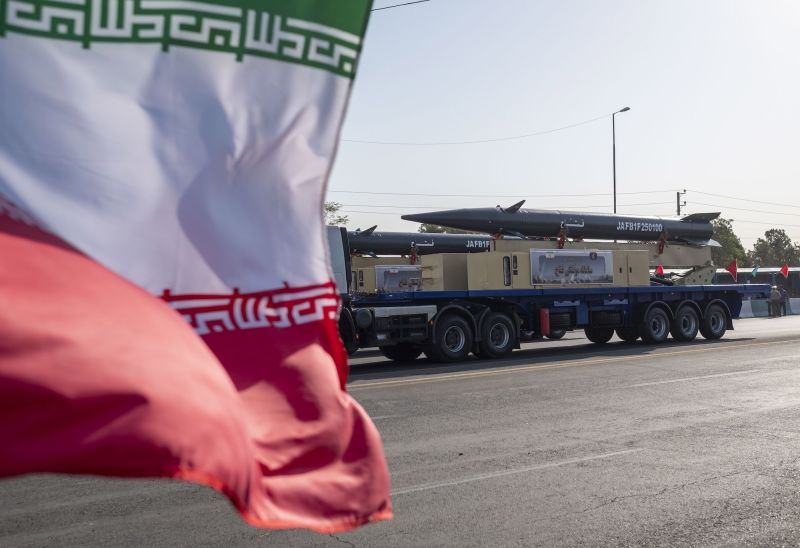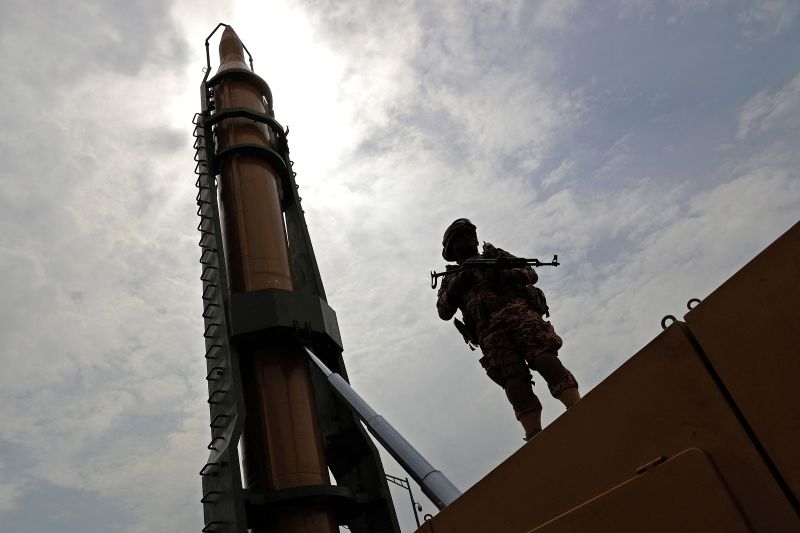What is happening in Gaza, occupied West Bank, Lebanon
With the missile attack on Israel grabbing the headlines, let’s take a look at what is happening in other areas:
- Palestinian news agency Wafa reports that Israeli forces opened fire towards Palestinian vehicles at the southern entrance of al-Khader town, south of the occupied West Bank city of Bethlehem.
- Israel launched new air raids on Beirut in Lebanon, hitting a building in Jnah, near the Zahraa Hospital in the southern Dahiyeh neighbourhood, and a building near Kuwait’s Embassy.
- Israeli strikes in the Gaza Strip have killed 11 in a shelter in the Nuseirat refugee camp, two in a house in Nuseirat refugee camp, seven in a tent west of Khan Younis, six in a car west of Khan Younis and three in Musabbeh north of Rafah.

Palestinians mourn relatives killed in the Israeli bombardment of the Gaza Strip, at a hospital in Deir al-Balah, Tuesday
Israeli attacks kill three in Nuseirat
The Wafa news agency is reporting that Israeli attacks in the Nuseirat refugee camp have killed three Palestinians and wounded eight.
Israeli attack kills eight Palestinians in Gaza City
As the world’s attention turns to the Iranian missile attack against Israel, the Israeli military has carried on with its relentless bombardment of the Gaza Strip.
An Israeli attack on a family home in the Shujaiya neighbourhood of Gaza City killed eight people late on Tuesday, the Palestinian Civil Defence said.
Schools in some West Bank cities to close tomorrow: Ministry
The Palestinian Ministry of Education has said that some schools and universities will switch to remote learning tomorrow “due to the current situation”.
Earlier today, Iran fired a salvo of ballistic missiles at Israel, some of which landed in the occupied West Bank when intercepted.
The universities of Birzeit, near Ramallah, and al-Najah, in Nablus, will close and students will study remotely, the ministry said in a statement.
The same would apply to schools in Hebron, Jericho, Jerusalem and its suburbs, as well as Bethlehem, it added.
Casualties, damage in West Bank from Iran’s missile attack
While Iran’s missile attack targeted Israeli settlements, which are built on stolen Palestinian land, these settlements are nestled between Palestinian towns and cities.
During the attack, [the] Israelis were getting messages from the government telling them to go to bomb shelters, but we need to remember that Palestinians had nowhere to go. There are no bomb shelters for Palestinians to seek shelter in.
One Palestinian man died of shrapnel wounds from the attack. Originally from Gaza, the man was at a Palestinian Authority training centre in Jericho. Four other Palestinians were wounded north of Jericho. Palestinian Civil Defence crews are also reporting damage across the occupied West Bank, including in the areas of Jenin, Tubas and Bethlehem.
While all of this is going on, some Palestinians are celebrating the attack. They say these celebrations are a natural reaction to Israel’s yearlong war on Gaza, in which Israeli forces have killed more than 41,000 people.
It’s kind of a mix of feelings watching the destruction happening so close to home while they’re also in the line of fire.
























































